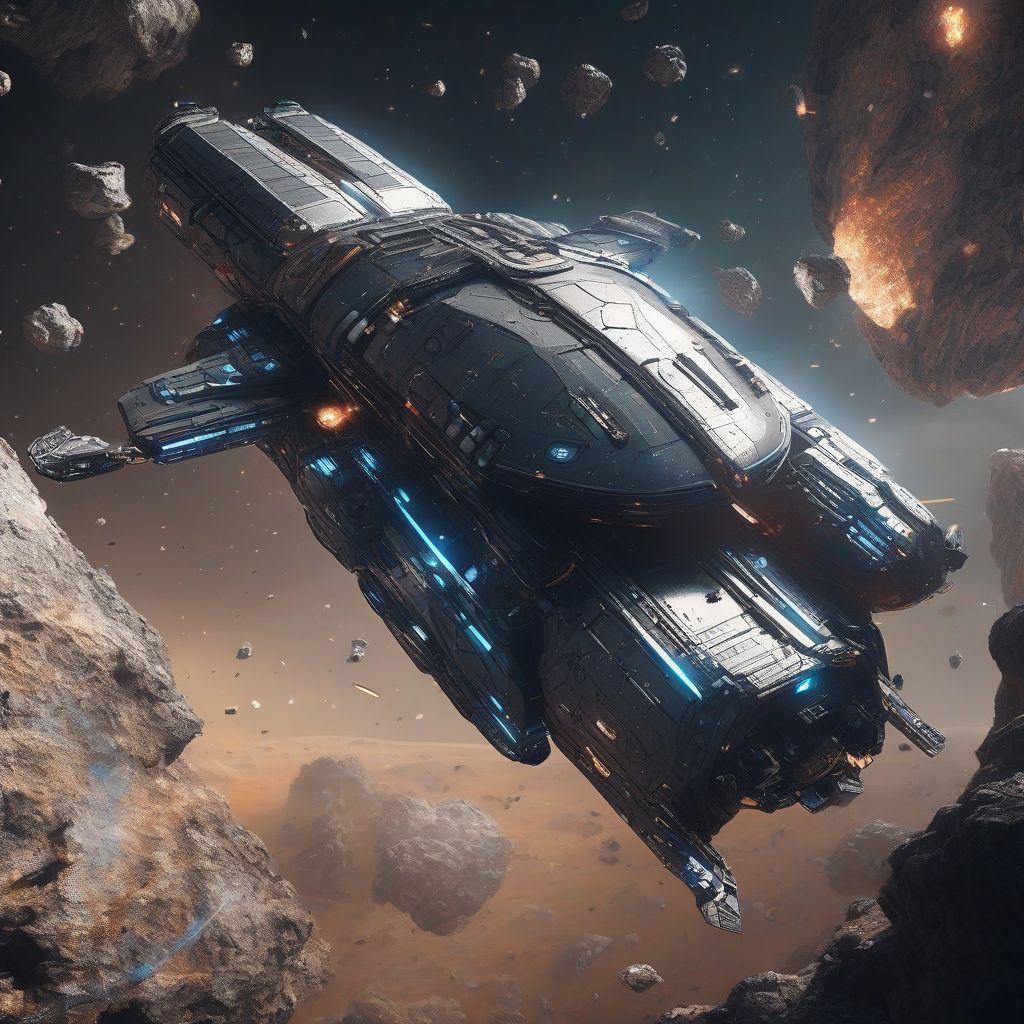Have you ever dreamt of exploring the vast expanse of space, uncovering its mysteries and pushing the boundaries of human knowledge? That dream is becoming increasingly achievable, thanks to the incredible advancements in artificial intelligence (AI) and machine learning (ML). These technologies are revolutionizing space exploration, from autonomous spacecraft navigation to analyzing complex datasets from telescopes. Let’s delve into the fascinating world of AI and ML in space tech and explore their transformative impact.
How AI and ML are Transforming Space Exploration
AI and ML are proving to be game-changers in space tech, enabling us to tackle challenges that were previously insurmountable. Their ability to process vast amounts of data, identify patterns, and make decisions with minimal human intervention is opening up exciting new possibilities.
Autonomous Navigation and Control
One of the most significant applications of AI in space is autonomous navigation and control of spacecraft. AI algorithms allow spacecraft to navigate complex trajectories, adjust to unexpected situations, and even land on other planets with minimal human intervention. This is particularly important for missions to distant destinations where communication delays make real-time control from Earth difficult. Imagine a spacecraft autonomously adjusting its course to avoid a sudden asteroid or landing precisely on a designated spot on Mars without constant human guidance. This level of autonomy is crucial for the future of deep space exploration.
Enhanced Data Analysis and Scientific Discovery
Space telescopes and probes generate massive amounts of data, far exceeding human capacity to analyze effectively. AI algorithms excel at sifting through this data, identifying patterns, and flagging potentially significant discoveries. They can detect exoplanets, classify galaxies, and even predict space weather events, significantly accelerating scientific progress. As Dr. Ellen Ochoa, former director of the Johnson Space Center, said, “AI is not just a tool; it’s a partner in discovery.”
Optimizing Mission Planning and Resource Management
Planning complex space missions involves countless variables, from trajectory optimization to resource allocation. AI algorithms can analyze these variables and generate optimal mission plans, taking into account factors like fuel consumption, trajectory constraints, and scientific objectives. This not only increases mission efficiency but also reduces risks and costs.
Robotic Exploration and Sample Collection
Robots equipped with AI and ML capabilities are revolutionizing planetary exploration. They can autonomously navigate challenging terrain, identify and collect interesting rock samples, and even conduct experiments without direct human control. This drastically expands our ability to explore other worlds, even those with harsh or inaccessible environments. Think of the Mars rovers – Curiosity and Perseverance – and their ability to traverse Martian terrain and collect valuable scientific data. AI and ML are enhancing these capabilities, enabling future rovers to be even more independent and efficient.
Improving Spacecraft Design and Maintenance
AI is also impacting the design and maintenance of spacecraft. Algorithms can optimize designs for specific missions, predict potential failures, and even recommend preventive maintenance strategies. This leads to more robust and reliable spacecraft, increasing the likelihood of mission success and minimizing the risk of costly malfunctions.
 AI and Machine Learning in Space Exploration
AI and Machine Learning in Space Exploration
Addressing Challenges and Future Directions
While the potential of AI and ML in space tech is immense, there are also challenges to overcome. Ensuring the reliability and robustness of AI algorithms in the harsh environment of space is crucial. Developing robust algorithms that can handle unexpected events and adapt to changing conditions is a key focus of ongoing research.
Data Security and Privacy
As AI becomes more integrated into space operations, data security and privacy become increasingly important. Protecting sensitive data from cyberattacks and ensuring the integrity of scientific findings are critical considerations.
Ethical Implications
The increasing autonomy of AI systems in space raises ethical questions about decision-making in critical situations. Developing ethical guidelines for the use of AI in space is crucial as we move towards more autonomous missions.
Conclusion
AI and ML are transforming the landscape of space exploration, enabling us to push the boundaries of human knowledge and reach for the stars. From autonomous navigation to enhanced data analysis, these technologies are revolutionizing how we explore the cosmos. While challenges remain, the potential benefits are immense, paving the way for a future where humanity’s reach extends far beyond our planet.
What are your thoughts on the role of AI in space exploration? Share your comments below, and let’s discuss the exciting future this technology holds! Explore more about space tech advancements by visiting [link to relevant page/resource on your website].



